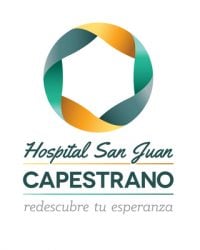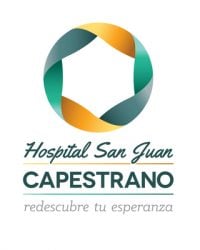Hospital Metropolitano de Cabo Rojo
Drug Rehab Center in Mayaguez, Puerto Rico
- Mental Health
- Eating Disorder
- Dual Diagnosis
Hospital Metropolitano de Cabo Rojo in Mayaguez, Puerto Rico offers well-equipped treatment for dual diagnosis, eating disorder, and other mental health conditions with an emphasis on addressing root causes and utilizing various therapies, while accepting private health insurance.
About Hospital Metropolitano de Cabo Rojo in Puerto Rico
Hospital Metropolitano de Cabo Rojo is a well-equipped facility located in Mayaguez, Puerto Rico, offering treatment for dual diagnosis, eating disorder, and other mental health conditions. The hospital places great emphasis on addressing the root causes of mental health issues and helping individuals understand their attitudes and behaviors to reach better mental health.
At Hospital Metropolitano de Cabo Rojo, they provide dual diagnosis treatment which involves addressing both the substance use issues as well as mental health difficulties. They also utilize a range of therapies to help individuals improve mental health such as Dialectical Behavioral Therapy (DBT), Eating Disorder Treatment, Experiential Therapy, Family Therapy, Group Therapy, Individual Therapy, Nicotine Replacement Therapy (NRT), and Trauma Therapy. Furthermore, the hospital also accepts private health insurance to make the care more accessible for their patients.
Genders
Ages
Modality
Additional
Conditions and Issues Treated
Dual diagnosis refers to someone who has both an addiction and a mental or emotional illness. Dual diagnosis treatment includes therapy for both issues simultaneously, allowing for effective treatment of either.
Sometimes people with addiction disorders also have co-occurring disorders like depression, anxiety, bipolar disorder, etc. These require specialized treatment programs that address both drug and alcohol addiction as well as psychiatric illnesses. Some rehabilitation facilities provide patients with co-occurring disorders a program with highly integrated services and a clean, distraction-free environment.
Levels of Care Offered
This center offers a variety of custom treatment tailored to individual recovery. Currently available are Dual-Diagnosis, with additional therapies available as listed below.
Therapies & Programs
Different people react differently to various treatment options. Some drug rehabilitation centers offer individualized treatment that caters to the specific needs of a drug addict. The best treatment option varies on an individual depending on the type of drug abused, life history, medical condition of the person, social circumstances, and the environment they live in now.
When a person enters drug rehab, they usually have anti-drug associations such as withdrawal symptoms, stress, cravings, etc. The first step of drug rehab is to detoxify the body from any residual substances in it. Drug rehabilitation centers usually employ trained medical professionals to help in this process. Usually, the initial detoxification lasts for five days, where the person is monitored under close supervision.
Family therapy sessions typically involve the addict and their family members. During these sessions, a therapist will work with everyone involved to help them understand addiction and find healthy ways of coping without substance abuse.
Some addicts might feel embarrassed about their substance abuse problems. By encouraging family members to attend these sessions, therapists can show addicts that they’re not alone in dealing with addiction. Therapists can also work with family members to help them understand addiction and learn how to offer support and encouragement to their loved one as they deal with substance abuse issues.
Attending group therapy at Hospital Metropolitano de Cabo Rojo in , is a useful way for those seeking sobriety to realize they aren’t the only one going through it.
This is when a group of people on different recovery phases get together and talk about what they’re going through, their triggers, successes, and failures. This can include alternative types of therapies too! Group therapy may occur on an outpatient or inpatient basis with groups that have no pre-existing relationships outside the session, unlike support groups where everyone already knows each other beforehand.
Trauma therapy is a form of therapy used to help people process and understand past traumas. This can help struggling addicts, as many people turn to drugs or alcohol to mask the pain of their past. Trauma therapy can be done in several ways, such as through visualization, discussion, and writing down thoughts and feelings. The goal is to help the individual understand why they are having problems coping with certain situations and changing how they think and react to things. This is often done in tandem with other therapies to treat the underlying issues associated with addiction.
The idea behind trauma therapy is that while some people can experience traumatic events and not have lasting psychiatric symptoms, many others will. In these cases, memories get hidden from consciousness but continue to influence how the person processes and copes with things in their life. They may avoid situations that resemble what happened or become suddenly angry or irritated to a situation that reminds them of a past event. With the help of a therapist, people can go back over memories and experiences. This helps them understand why they are having problems coping with certain situations and changing how they think and react to things.
This type of cognitive-behavioral therapy helps people understand how their thoughts, behaviors, and feelings are interconnected. It can help patients with borderline personality disorder gain control over their actions and stop self-harming thoughts and attempts.
Cognitive Behavioral Therapy is a type of psychotherapy that helps people address the thoughts and behaviors that may have led to their addiction. It also helps change negative thoughts into positive ones and promotes healthy communication between addicts and those around them. CBT is an efficient treatment for individuals suffering from all sorts of addictions.
Cognitive Behavioral Therapy (CBT) focuses on the underlying thoughts and behaviors that caused the problem of addiction in the first place and may cause a relapse. Negative feelings are common in drug abuse disorders, but they can lead to co-occurring disorders if not recognized. CBT involves strategies that help to change the behavior pattern by restructuring negative thoughts into positive ones. It helps to remove these feelings, and it provides long-term benefits. Also, CBT promotes self-awareness, self-control and can be administered as a mono-therapy or as part of combination therapy.
Patient Experience
Experiential Therapy at Hospital Metropolitano de Cabo Rojo
Experiential therapy is a type of therapeutic approach that focuses on having patients work through problems, issues, or emotions by engaging directly in some real experience. It occurs face-to-face with a therapist who helps these people to explore their feelings first hand. The hope is that when this happens, the patient will feel driven to turn away from their destructive behavior and instead take up positive behaviors or coping mechanisms. Direct experience methods, role play, psychodrama, interpersonal and social learning are a few different forms of experiential therapy.
Payment Options Accepted
For specific insurance or payment methods please contact us.
Is your insurance accepted?
Ask an expert, call (888) 674-0062
Additional Details
Specifics, location, and helpful extra information.
Mayaguez, Puerto Rico 682 Phone Number(787) 851-2025 Meta DetailsUpdated November 25, 2023
Staff Verified
Hospital Metropolitano de Cabo Rojo Patient Reviews
There are no reviews yet. Be the first one to write one.
Mayaguez, Puerto Rico Addiction Information
15% of the population in Mayaguez struggles with addiction to drugs or alcohol. Heroin addiction is also a problem with over 1,000 dying from overdoses in 2014. The availability of drugs and the high crime rate in Mayaguez contribute to the problem. There are various drug treatment options available in Mayaguez, Puerto Rico. Some of the most common treatments include inpatient rehab, outpatient rehab, and 12-step programs.
Treatment in Nearby Cities
- Cayey, PR (65.5 mi.)
- Aibonito, PR (58.8 mi.)
- Rio Grande, PR (87.7 mi.)
- Aguadilla, PR (16.5 mi.)
- Las Marias, PR (12.0 mi.)
Centers near Hospital Metropolitano de Cabo Rojo




The facility name, logo and brand are the property and registered trademarks of Hospital Metropolitano de Cabo Rojo, and are being used for identification and informational purposes only. Use of these names, logos and brands shall not imply endorsement. RehabNow.org is not affiliated with or sponsored by Hospital Metropolitano de Cabo Rojo.

